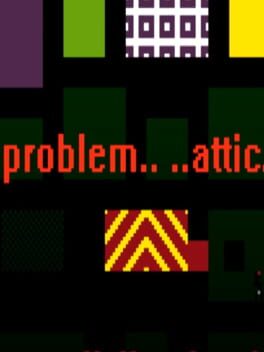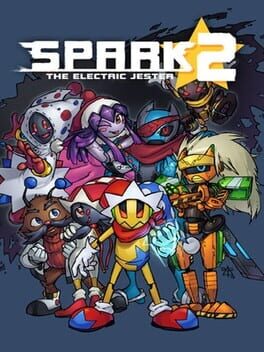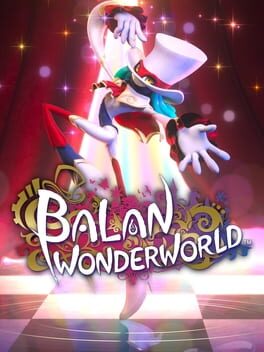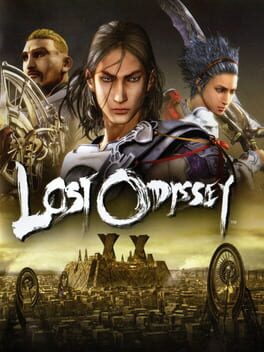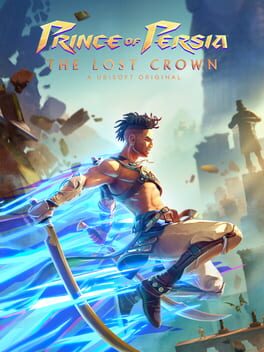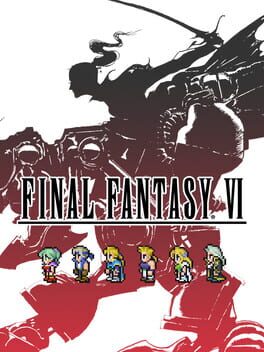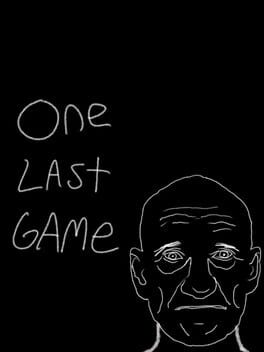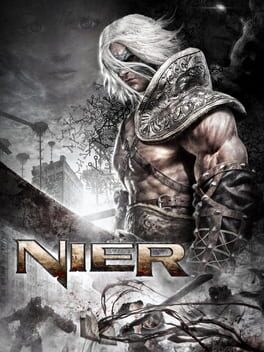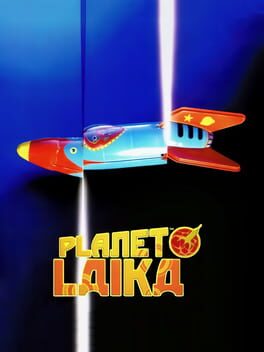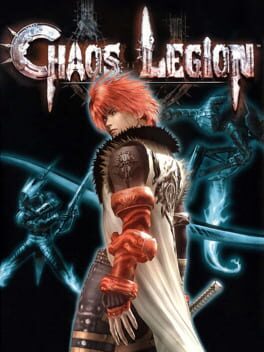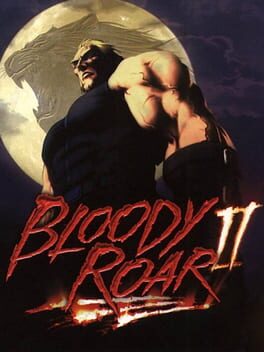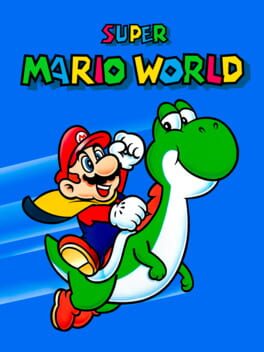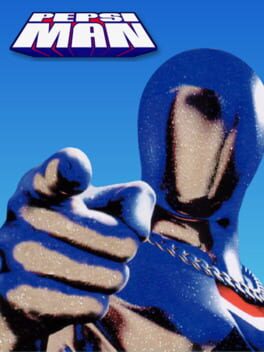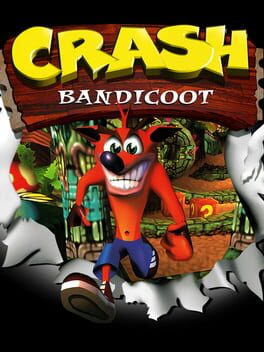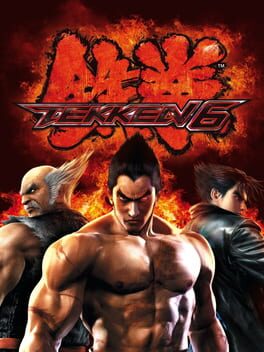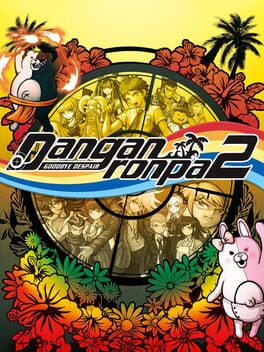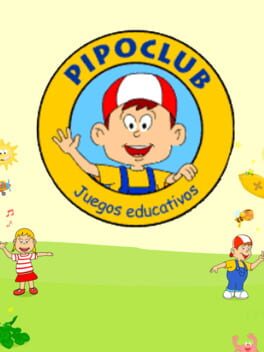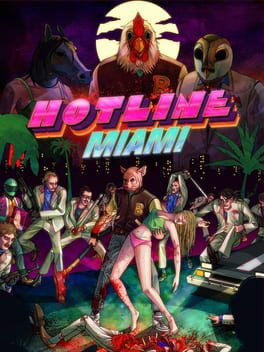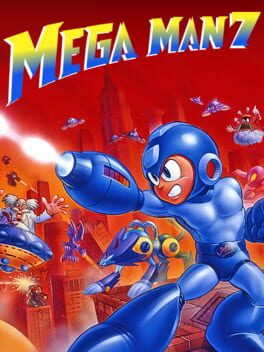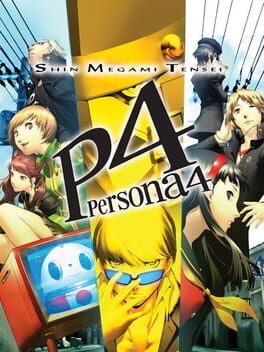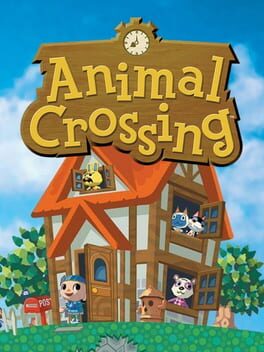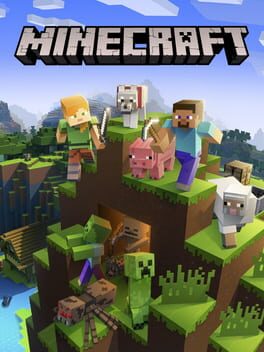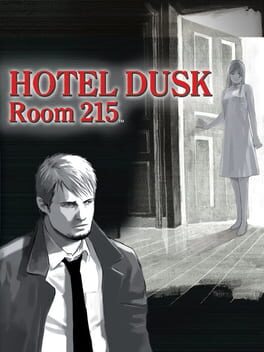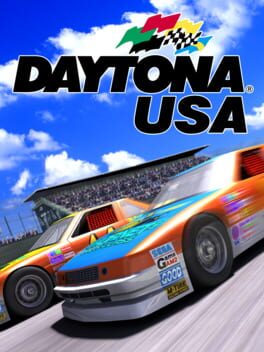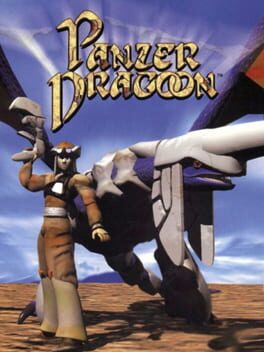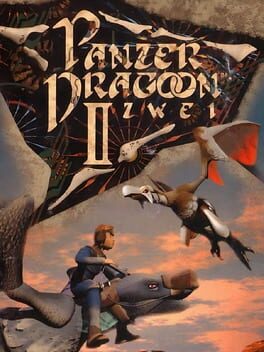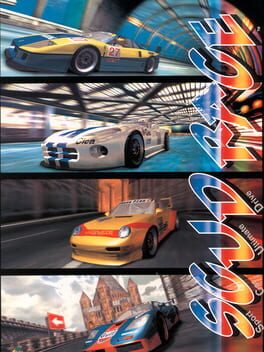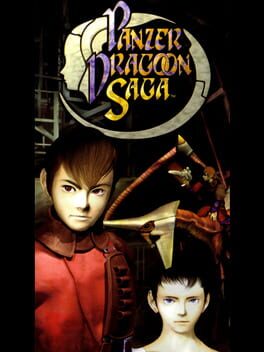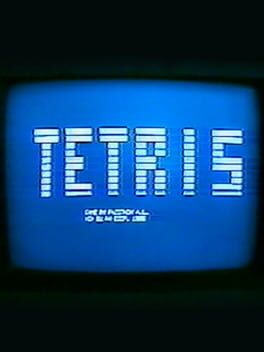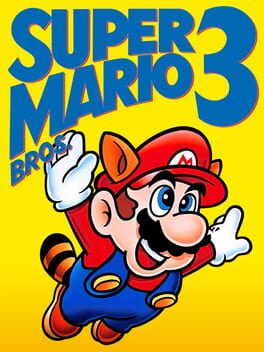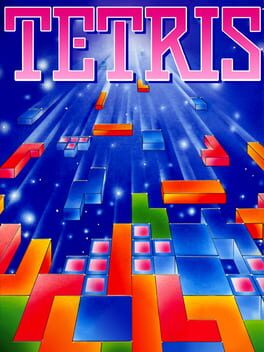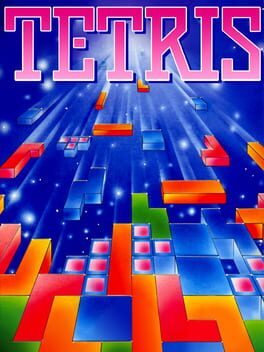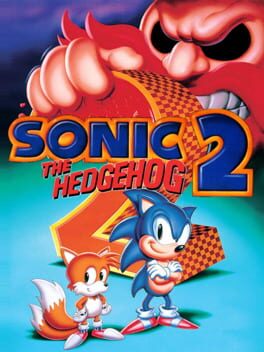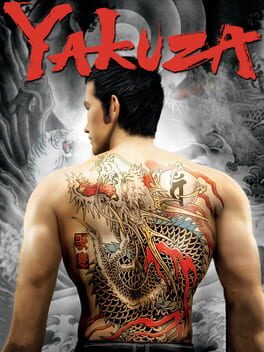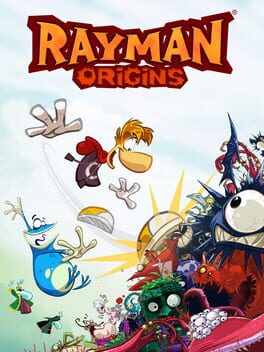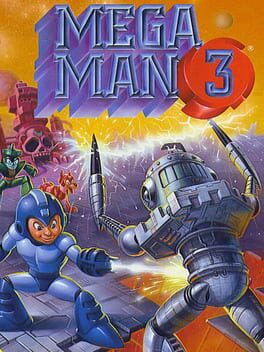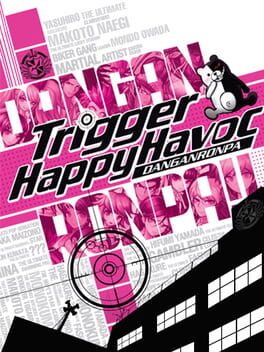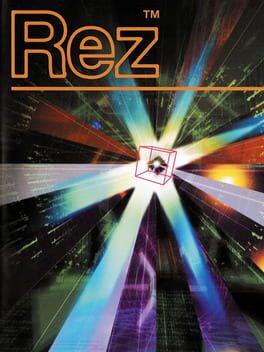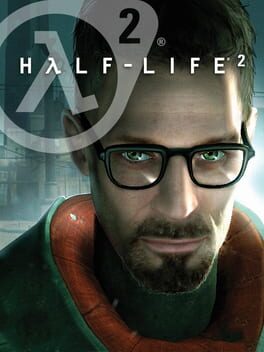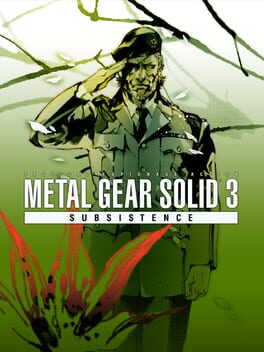Dyoxsito
81 reviews liked by Dyoxsito
Problem Attic
2013
Estos días he estado leyendo el blog de Liz Ryerson, ya había jugado problem attic pero apenas había leído lo que escribe (si pueden chequenlo, es bastante bueno https://ellaguro.blogspot.com/?m=1) así que me dio por volver a jugar a su obra después de mucho tiempo, seré honesto, la primera vez lo hice no entendí mucho, trate de hacer como que me gustaba para ser lo chicos cool fans de Beat bit beet y de los juegos underground etc. Ahora que al menos soy un poco más sincero conmigo mismo decidí darle una nueva oportunidad y... No esperaba sentirme tan cautivado. El juego esta dividido en 3 partes, en la primara el juego presenta desafíos bastante Claros y establece unas reglas concretas, como cualquier otro juego de plataformas, llegar a la meta y ya esta, pero en las siguientes 2 fases el juego va subvirtiendo las expectativas cambiando radicalmente las reglas y obligandote a adaptarte, forzarte a entender, entonces los desafíos del juego se vuelven más obtusos e incluso se repiten anteriores niveles pero aplicando las nuevas reglas, manteniendo el avance del juego no solo fresco al ir planteando variaciones muy creativas, sino que cumple la función de transmitir el dolor e incondidad de tener que encajar en un molde ya preestablecido, de tener que moldearte a la fuerza por razones que no entiendes, es incómodo, es desagradable.
Muchas veces se nos mete dentro de cajas de zapatos estrechas donde tenemos que obligarnos a encajar todo para ser "normales" encajar en una serie de moldes ya pre hechos sin nuestro consentimiento. Yo no sufro disforia de género, así que no puedo entender del todo el dolor de Lyz, pero si puedo identificarme con ese sentimiento de estar metido en una caja de zapatos hermética, salvando las distancias, pude sentir su dolor y creo que eso de lo más bonito que puede haber , poder compartir experiencias y sensaciones sin importar la distancia.
Muchas veces se nos mete dentro de cajas de zapatos estrechas donde tenemos que obligarnos a encajar todo para ser "normales" encajar en una serie de moldes ya pre hechos sin nuestro consentimiento. Yo no sufro disforia de género, así que no puedo entender del todo el dolor de Lyz, pero si puedo identificarme con ese sentimiento de estar metido en una caja de zapatos hermética, salvando las distancias, pude sentir su dolor y creo que eso de lo más bonito que puede haber , poder compartir experiencias y sensaciones sin importar la distancia.
A poor jump into 3D for the franchise, much weaker than Sonic's. Taking away content, having only 4 abilities which are only used for combat, even though they operate basically the same in those scenarios.
Combat is worse, AI sometimes can't handle you simply moving. But you don't need to move anyway, the parrying is super generous and, thus, overpowered. You just stand in place, parry roughly around the time the enemy attacks, charge your powerup bar and win. The previous game at least gave you a new power for charging up the bar. Here it's just a damage modifier.
I really hate it when games add random curves along a straight path just to make moving forward actually move you a little bit to the side. Makes the typically hands-off moments annoying. Usually, 3D Sonic game would put a nice spectacle for you to enjoy while you run through these. Not here.
Bigger focus on the story. Doesn't do much for me. Fark is boring protagonist. Game's so short that nothing sticks. The cutscenes are poor, models don't look great when you zoom in on them, and the sound effects are silly.
Levels have hidden alcoves and collectibles hidden along them. That's the best thing about them. It's cool to spot them while running. I am not fond of pretty much anything else in the level design. Very, very straightforward, but, like previously mentioned, it lacks any spectacle. Although there were moments where I was confused where I'm at.
There's a lot of glitches. Everywhere. Ones that aren't consistent and are super annoying. The map, on which you select levels. sometimes resets you to the first position and doesn't register that the next location opened straight away, there's a small delay. Small annoyance, but it's only one of many. Biggest one is probably that surface detection is pretty wonky. Sloped surfaces are treated like walls, and walls can no longer be stuck to with a hold of a button, like in the first game. Another bad change.
You have more control of the camera while running as compared to Sonic. I realized that that's not the best idea very quick. Set camera works really well for Sonic, it makes for memorable moments and the games still control well during perspective switches. Here, there's more chaos if you, for example, want to see what's ahead, so you flick the stick, but then you lose control because there's a slight turn, and the character moves in relation to the position of the camera.
The worst design decision is definitely adding a delay to the dash ability. Perhaps the single biggest reason why the game feels sluggish at times, and why the in-stage combat does too. It's weird that one of the best ideas 3D Sonic had gets implemented into a game like this and butchered so badly.
Very disappointed by this. I am a bigger fan of the 3D Sonic style, but I don't think this game quite got it. Here's hoping improvements were made in the third installment.
Combat is worse, AI sometimes can't handle you simply moving. But you don't need to move anyway, the parrying is super generous and, thus, overpowered. You just stand in place, parry roughly around the time the enemy attacks, charge your powerup bar and win. The previous game at least gave you a new power for charging up the bar. Here it's just a damage modifier.
I really hate it when games add random curves along a straight path just to make moving forward actually move you a little bit to the side. Makes the typically hands-off moments annoying. Usually, 3D Sonic game would put a nice spectacle for you to enjoy while you run through these. Not here.
Bigger focus on the story. Doesn't do much for me. Fark is boring protagonist. Game's so short that nothing sticks. The cutscenes are poor, models don't look great when you zoom in on them, and the sound effects are silly.
Levels have hidden alcoves and collectibles hidden along them. That's the best thing about them. It's cool to spot them while running. I am not fond of pretty much anything else in the level design. Very, very straightforward, but, like previously mentioned, it lacks any spectacle. Although there were moments where I was confused where I'm at.
There's a lot of glitches. Everywhere. Ones that aren't consistent and are super annoying. The map, on which you select levels. sometimes resets you to the first position and doesn't register that the next location opened straight away, there's a small delay. Small annoyance, but it's only one of many. Biggest one is probably that surface detection is pretty wonky. Sloped surfaces are treated like walls, and walls can no longer be stuck to with a hold of a button, like in the first game. Another bad change.
You have more control of the camera while running as compared to Sonic. I realized that that's not the best idea very quick. Set camera works really well for Sonic, it makes for memorable moments and the games still control well during perspective switches. Here, there's more chaos if you, for example, want to see what's ahead, so you flick the stick, but then you lose control because there's a slight turn, and the character moves in relation to the position of the camera.
The worst design decision is definitely adding a delay to the dash ability. Perhaps the single biggest reason why the game feels sluggish at times, and why the in-stage combat does too. It's weird that one of the best ideas 3D Sonic had gets implemented into a game like this and butchered so badly.
Very disappointed by this. I am a bigger fan of the 3D Sonic style, but I don't think this game quite got it. Here's hoping improvements were made in the third installment.
Balan Wonderworld
2021
Mucha gente dice que este juego es malo, y saben que? Están todos equivocados, decir que es malo es solo un 0,0000000000000001% de lo aberrante que llega a ser, solo lo aguanté 3 mundos, la música es lo más rescatable pero hasta ahí no más, da cringe, los gráficos son horribles, se reutilizan animaciones, los devs parece que nunca jugaron un videojuego porque con un control de 8 botones se usa solo 1 para jugar, todo lo que plantea lo hace mal y peor, no entiendo lo historia, no se explica nada, las cosas pasan porque si, y podría hablar 700 horas de lo malo que es este juego solo habiendo jugado 3 mundos, no necesito más.
Lo que puedo concluir aquí es que solamente por este juego yuji naka debería tener 3 cadenas perpetuas.
Lo que puedo concluir aquí es que solamente por este juego yuji naka debería tener 3 cadenas perpetuas.
Moon: Remix RPG Adventure exists in a dream, in a space of blended influences and distorted memories of childhood fantasies. From the claymation to the oddly realistic yet amorphous textures, Moon's visual style belongs to the imaginations of every child who grew up with games. The obvious jpeg artifacting and audio compression highlight the limitations of the technology in such a way that it reminds the player that this is, in fact, a game. It works as an immersive piece because it is not conventionally immersive. Trudging through these moments of jank and noticing the visual imperfections serve to ground the game in its commentary on the interactions players have with games themselves.
Moon: Remix RPG Adventure has a very strict time limit per day and the only way to reset the day is to go to sleep, which also lets the game save and for the player to deposit their love (xp equivalent) to the Love Queen. This mechanic, paired with the large world and slow movement, forces the player to prioritize and create a plan for what they are going to do in a day. Moon traps the player into only doing a certain amount of tasks per day to commentate on the the grind heavy and slow progression of other RPGs and the unhealthy binge that those games are designed to keep players in. Even if someone does binge Moon, there are still calculated moments of rest (even from the already relaxing world) and instead, rewards the player for taking breaks. Even when the timer expands to fit multiple days per run, the player still feels motivated to create a plan and because it fits with the design language of the world. The game's tone is so free-spirited and patient that blasting through it all harms the experience. It was nice to let myself get lost doing a couple small tasks and then calling it early and returning home. Moon incentivizes slower play and, in turn, fosters intrinsic motivation for the player to complete everything, save every animal and talk to every character.
Moon is a game within a game where the player first takes control of The Hero in fake "Moon" and plays like they would their average JRPG: looting houses, grinding for EXP, and searching for the next monster to slay. Then the boy who controls fake "Moon" is transported into the game, not as The Hero, but an invisible being who is left to internalize the other NPCs reactions to The Hero and witness their path of corpses. To save animals, you do not catch them per se, but catch their souls and then return them to their body. Each soul is attached to a habit that the animal had while they were alive. It gives a personality and quirky innocence to everyone that The Hero massacred. The real protagonist is left to pick up after themselves and confront their brutality. Its "anti-rpg" design enables the player to form a relationship with the animals and characters as their service is not characterized by violence, but by mending the damage. Instead of bonding through the defeat of the oppressor, the player's emotions are derived from a need to secure peace and save the world from themselves. Moon's overarching narrative about being an invisible helping hand runs counter to the God-like status players tend to work towards in other games and to The Hero's goals. It broke the way that I look at violence in video games. Anytime I fight a tonberry in Final Fantasy, battle Pokemon or even shoot down a grunt in Halo, I will think back to what Moon forced me to experience and lament on what anyone could only imagine exists beyond the code.
But fuck that fishing minigame. Six hours of my life I will never get back.
Moon: Remix RPG Adventure has a very strict time limit per day and the only way to reset the day is to go to sleep, which also lets the game save and for the player to deposit their love (xp equivalent) to the Love Queen. This mechanic, paired with the large world and slow movement, forces the player to prioritize and create a plan for what they are going to do in a day. Moon traps the player into only doing a certain amount of tasks per day to commentate on the the grind heavy and slow progression of other RPGs and the unhealthy binge that those games are designed to keep players in. Even if someone does binge Moon, there are still calculated moments of rest (even from the already relaxing world) and instead, rewards the player for taking breaks. Even when the timer expands to fit multiple days per run, the player still feels motivated to create a plan and because it fits with the design language of the world. The game's tone is so free-spirited and patient that blasting through it all harms the experience. It was nice to let myself get lost doing a couple small tasks and then calling it early and returning home. Moon incentivizes slower play and, in turn, fosters intrinsic motivation for the player to complete everything, save every animal and talk to every character.
Moon is a game within a game where the player first takes control of The Hero in fake "Moon" and plays like they would their average JRPG: looting houses, grinding for EXP, and searching for the next monster to slay. Then the boy who controls fake "Moon" is transported into the game, not as The Hero, but an invisible being who is left to internalize the other NPCs reactions to The Hero and witness their path of corpses. To save animals, you do not catch them per se, but catch their souls and then return them to their body. Each soul is attached to a habit that the animal had while they were alive. It gives a personality and quirky innocence to everyone that The Hero massacred. The real protagonist is left to pick up after themselves and confront their brutality. Its "anti-rpg" design enables the player to form a relationship with the animals and characters as their service is not characterized by violence, but by mending the damage. Instead of bonding through the defeat of the oppressor, the player's emotions are derived from a need to secure peace and save the world from themselves. Moon's overarching narrative about being an invisible helping hand runs counter to the God-like status players tend to work towards in other games and to The Hero's goals. It broke the way that I look at violence in video games. Anytime I fight a tonberry in Final Fantasy, battle Pokemon or even shoot down a grunt in Halo, I will think back to what Moon forced me to experience and lament on what anyone could only imagine exists beyond the code.
But fuck that fishing minigame. Six hours of my life I will never get back.
Love this games dedication to wasting your time but jesus there is so much waiting haha
Lost Odyssey
2007
La libertad de hacer lo que te plazca sabiendo que tienes tiempo de sobra, el saber que el bienestar de generaciones enteras dependen de tus conocimientos y experiencia sobrehumana que rebasa contra el tiempo, ó cumplir con una promesa, son algunas de las maneras en que los individuos de esta travesía milenaria podrían interpretar su objetivo ante la búsqueda de una respuesta a la misma pregunta: ¿Qué es lo que verdaderamente mantiene vivo a un ser inmortal?
El núcleo de Lost Odyssey radica en la exploración de su mundo que, además de ayudarnos a darle más trasfondo al conflicto principal, sirve para conectar con las múltiples anécdotas de nuestros personajes durante sus 1000 años de vida. Esto es contado a través de pequeños relatos donde tratan el cómo las personas de distintas eras y lugares tratan las diferentes maneras en que relacionan el concepto de "Morir" y "Vivir", con el fin afrontar poco a poco con el agridulce destino de nunca poder fallecer, o al menos, no de una manera convencional.
Su sistema de combate da para hablar de igual manera. Desde su sistema, anillos, enlaces y posicionamiento, es un juego en el que te recompensa por relacionarte con todos y cada uno de los miembros de tu party y estar cambiando constantemente de estrategias si no quieres ver un Game Over constantemente. Hay ocasiones en las que vas a estar jugando de forma agresiva para aprovechar la velocidad de tus turnos, hay otras en las que vas a la defensiva para restaurar tu barra de defensa y así evitar daños peores a lo largo del combate y otras veces vas a tomar decisiones tan repentinas como sacrificar a miembros de tu equipo con el fin de aprovechar su inmortalidad. Todo puede pasar, pero ten por seguro que tu ingenio y precisión se verán recompensados.
Llegado el momento de la conclusión de la experiencia, el juego decide terminar con la cuestión principal de sus protagonistas y dejándolos con distintas catarsis con respecto a su manera en que interpretaron el significado de la vida en ese eterno milenio de dudas, sin embargo, algo pueden compartir entre cada uno de ellos: Hagan lo que hagan, así dure un día o la eternidad, el objetivo de vivir siempre será tener un "por qué" hacer lo que haces y por "quién" hacerlo para así tenerlo siempre presente en tu memoria.
El núcleo de Lost Odyssey radica en la exploración de su mundo que, además de ayudarnos a darle más trasfondo al conflicto principal, sirve para conectar con las múltiples anécdotas de nuestros personajes durante sus 1000 años de vida. Esto es contado a través de pequeños relatos donde tratan el cómo las personas de distintas eras y lugares tratan las diferentes maneras en que relacionan el concepto de "Morir" y "Vivir", con el fin afrontar poco a poco con el agridulce destino de nunca poder fallecer, o al menos, no de una manera convencional.
Su sistema de combate da para hablar de igual manera. Desde su sistema, anillos, enlaces y posicionamiento, es un juego en el que te recompensa por relacionarte con todos y cada uno de los miembros de tu party y estar cambiando constantemente de estrategias si no quieres ver un Game Over constantemente. Hay ocasiones en las que vas a estar jugando de forma agresiva para aprovechar la velocidad de tus turnos, hay otras en las que vas a la defensiva para restaurar tu barra de defensa y así evitar daños peores a lo largo del combate y otras veces vas a tomar decisiones tan repentinas como sacrificar a miembros de tu equipo con el fin de aprovechar su inmortalidad. Todo puede pasar, pero ten por seguro que tu ingenio y precisión se verán recompensados.
Llegado el momento de la conclusión de la experiencia, el juego decide terminar con la cuestión principal de sus protagonistas y dejándolos con distintas catarsis con respecto a su manera en que interpretaron el significado de la vida en ese eterno milenio de dudas, sin embargo, algo pueden compartir entre cada uno de ellos: Hagan lo que hagan, así dure un día o la eternidad, el objetivo de vivir siempre será tener un "por qué" hacer lo que haces y por "quién" hacerlo para así tenerlo siempre presente en tu memoria.
[Game Director]
- Mounir Radi
[Senior Game Designer]
- Rèmi Boutin
[Combat Designer]
- Lucas Sachez
- Paul Bordeau
- Red Cochennec
[Level Designer]
- Bertrand Israel
- Yannick Patet
- Gregory Palvadeu
- Erwan Cochon
- Alvin Chambost
- Tom Guiraud
- Alberto Portero Ariza
Praise their names instead of Ubisoft.
- Mounir Radi
[Senior Game Designer]
- Rèmi Boutin
[Combat Designer]
- Lucas Sachez
- Paul Bordeau
- Red Cochennec
[Level Designer]
- Bertrand Israel
- Yannick Patet
- Gregory Palvadeu
- Erwan Cochon
- Alvin Chambost
- Tom Guiraud
- Alberto Portero Ariza
Praise their names instead of Ubisoft.
De antemano, digo que me gustó el final y creo que el odio es exagerado, su complejidad no es tanta como lo hacen notar.
Con eso fuera, Final Fantasy VII Rebirth puede competir en ser uno de los mejores FF o RPGs de la historia, lo que hace es increíble.
Uno de sus puntos más fuertes es el cast, el cual lo han desarrollado a más no poder, dándonos todo tipo de momentos que fluyen las emociones de quienes acompañan a Cloud para que los podamos a entender en distintos niveles, de tal manera, que además los hacen sentir como un verdadero equipo unido que se preocupan unos de otros. Súmale valores de producción, gráficos y animaciones que expresan sin miedo a lo absurdo las personalidades bombásticas de cada miembro de la party.
El gameplay lo amo, amé con toda mi alma lo que presentó Remake y me pone contento que Square Enix lo entienda y solo lo mejore en vez de reemplazarlo, es una mezcla PERFECTA entre acción y turnos, dándonos lo mejor de los dos mundo, aunque más de turnos. Gracias a la materia tenemos personalización pero sin perder la identidad jugable de cada party member, esto es gracias a sus habilidades únicas, movesets que se notan más al tener acción, entre otras cosas. En esta versión agregaron los ataques de sinergia, que son preciosos y aportan a la fluidez del combate y manejo de recursos, donde tienes que priorizar qué beneficios quieres sobre otros.
¿Y la música? Qué poronga la música, es que es de no creer, es irreal lo extenso que es este OST, hay un tema para todo, hasta PARA UNA SIDE QUEST DE UN PERRITO, y todo de una calidad que supera a Remake, es absurdo el OST de este juego, es que en serio por algo el soundtrack será de 8 discos, te puedes hacer una playlist como de una semana solo con arreglos del Chocobo Theme.
En fin... Sin ir más allá, para mi es un excelente parte 2, el mundo es enorme, la duración justificada y los cambios de historias fueron para todos mejor, me sigue asustando a qué podrán apuntar los cambios más drásticos, pero mis teorías dan para algo que me gusta, pero eso lo sabremos en la tercera parte.
Con eso fuera, Final Fantasy VII Rebirth puede competir en ser uno de los mejores FF o RPGs de la historia, lo que hace es increíble.
Uno de sus puntos más fuertes es el cast, el cual lo han desarrollado a más no poder, dándonos todo tipo de momentos que fluyen las emociones de quienes acompañan a Cloud para que los podamos a entender en distintos niveles, de tal manera, que además los hacen sentir como un verdadero equipo unido que se preocupan unos de otros. Súmale valores de producción, gráficos y animaciones que expresan sin miedo a lo absurdo las personalidades bombásticas de cada miembro de la party.
El gameplay lo amo, amé con toda mi alma lo que presentó Remake y me pone contento que Square Enix lo entienda y solo lo mejore en vez de reemplazarlo, es una mezcla PERFECTA entre acción y turnos, dándonos lo mejor de los dos mundo, aunque más de turnos. Gracias a la materia tenemos personalización pero sin perder la identidad jugable de cada party member, esto es gracias a sus habilidades únicas, movesets que se notan más al tener acción, entre otras cosas. En esta versión agregaron los ataques de sinergia, que son preciosos y aportan a la fluidez del combate y manejo de recursos, donde tienes que priorizar qué beneficios quieres sobre otros.
¿Y la música? Qué poronga la música, es que es de no creer, es irreal lo extenso que es este OST, hay un tema para todo, hasta PARA UNA SIDE QUEST DE UN PERRITO, y todo de una calidad que supera a Remake, es absurdo el OST de este juego, es que en serio por algo el soundtrack será de 8 discos, te puedes hacer una playlist como de una semana solo con arreglos del Chocobo Theme.
En fin... Sin ir más allá, para mi es un excelente parte 2, el mundo es enorme, la duración justificada y los cambios de historias fueron para todos mejor, me sigue asustando a qué podrán apuntar los cambios más drásticos, pero mis teorías dan para algo que me gusta, pero eso lo sabremos en la tercera parte.
Final Fantasy VI
2022
This review contains spoilers
Una obra maestra sin duda alguna. Luego de años, por fin entiendo porque para muchos es el peak de Final Fantasy, para mi no lo fue, pero lo entiendo a la perfección.
Destaca en tener un cast tan variado y una estructura inusual, con un segundo acto que te lleva a conocer un mundo devastado y todo el sentimiento que eso conlleva. El juego entre la desesperación, angustia y esperanza es magnífico, especialmente cuando suena searching for friends por primera vez, esa idea de levantarse cuando literalmente está todo acabado porque no hay nada más que perder es un toque refrescante a estas magnitudes.
Kefka, si bien es un villano extremadamente plano y poco interesante, conceptualmente es perfecto para el cast de personajes, como lo era Necron en FFIX.
Quien no le ve sentido al motor de la vida y encuentra satisfacción solo a través del caos y destrucción es la anti tesis perfecta contra quienes lo han perdido casi todo, pero han encontrado el sentido de vivir en sus alrededores.
La pelea final es una de las más épicas en la historia de los videojuegos, es un espectáculo de arte, el diseño del jefe, mientras escalas con una de las mejores composiciones en la historia de los videojuegos es irreplicable, para terminar con Kefka en una figura de dios, mirándote hacia bajo, despreciando tus ideales, cine, como dicen.
Tuve varios problemas con el título a nivel jugable, algunos narrativos, como el ya mencionado plano villano, pero se perdona completamente con todo lo que logró y la importancia que tiene Final Fantasy VI.
Destaca en tener un cast tan variado y una estructura inusual, con un segundo acto que te lleva a conocer un mundo devastado y todo el sentimiento que eso conlleva. El juego entre la desesperación, angustia y esperanza es magnífico, especialmente cuando suena searching for friends por primera vez, esa idea de levantarse cuando literalmente está todo acabado porque no hay nada más que perder es un toque refrescante a estas magnitudes.
Kefka, si bien es un villano extremadamente plano y poco interesante, conceptualmente es perfecto para el cast de personajes, como lo era Necron en FFIX.
Quien no le ve sentido al motor de la vida y encuentra satisfacción solo a través del caos y destrucción es la anti tesis perfecta contra quienes lo han perdido casi todo, pero han encontrado el sentido de vivir en sus alrededores.
La pelea final es una de las más épicas en la historia de los videojuegos, es un espectáculo de arte, el diseño del jefe, mientras escalas con una de las mejores composiciones en la historia de los videojuegos es irreplicable, para terminar con Kefka en una figura de dios, mirándote hacia bajo, despreciando tus ideales, cine, como dicen.
Tuve varios problemas con el título a nivel jugable, algunos narrativos, como el ya mencionado plano villano, pero se perdona completamente con todo lo que logró y la importancia que tiene Final Fantasy VI.
One Last Game
2020
yakuza characters playing mahjong in an underground casino minutes before kiryu bursts through the door covered in blood and caves their skulls in
21 lists liked by Dyoxsito
by chump |
250 Games
by Cvit |
18 Games
by ShumaSegata |
26 Games
by ShumaSegata |
20 Games
by ShumaSegata |
75 Games
by Pangburn |
42 Games
by UnikOffical |
802 Games
by ShumaSegata |
31 Games
by ShumaSegata |
15 Games
